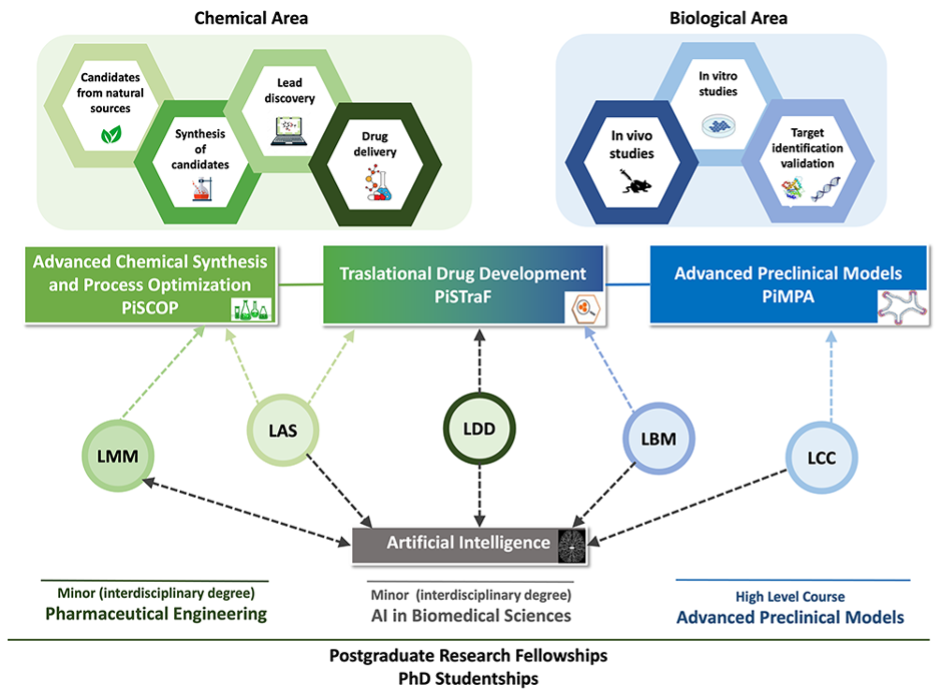The TRAVEL project
TRAVEL
Translation and Development
The ambitious goal of TRAVEL is to consolidate and expand the international stand of the Department of Pharmacy (DoP) both in teaching, through a "high-qualification teaching" program, and in the growingly competitive research area of drug discovery from the molecular design to preclinical studies.
The project lies on three fundamental thematic pillars: i) advanced pharmaceutical chemistry; ii) translational drug development and iii) advanced preclinical models. These pillars cross the boundaries of standard scientific areas and promote an innovative capability to generate technological and digital impact through the key enabling technologies (KET) in view of the contemporary challenges of precision and translation in pharmaceutical sciences.
Each pillar has been associated with the development of a specific research platform:
i) Advanced Chemical Synthesis and Process Optimization (Sintesi Chimica Avanzata e Ottimizzazione di Processi - PiSCOP), aimed at developing innovative and eco-friendly catalytic processes for the synthesis of pharmaceutical compounds;
ii) Translational Drug Development (Sviluppo Traslazionale di Farmaci - PiSTraF), intended to optimize and speed up the drug development process in terms of chemical and biological profiling, efficacy studies in animal models and formulation;
iiI) Advanced Preclinical Models (Modelli Preclinici Avanzati - PiMPA), aimed at developing novel 3D cellular culture technologies, embryo models, human organoids and avatars for personalised therapies.
The three platforms will take advantage of the scientific and technical support of five specialized laboratories:
- Laboratory of Cellular Cultures (LMM)
- Laboratory of Molecular Biology (LBM)
- Laboratory of Drug Delivery (LDD)
- Laboratory of Instrumental Analysis (LAS)
- Laboratory of Molecular Modelling (LMM)
that were established with the funds provided by the grant "Dipartimenti di Eccellenza 2018-2022" and that will be further implemented throughout TRAVEL.
Within the "high-qualification teaching" program, TRAVEL will envisage both undergraduate and -postgraduate activities.
Undergraduate activities:
- Two annual interdisciplinary degrees for master students (Minor):
- "Pharmaceutical Engineering", in collaboration with the Department of Chemical, Materials and Production Engineering
- "Artificial Intelligence in Biomedical Sciences" in collaboration with Department of Electrical and Information Technology Engineering.
Postgraduate activities:
- High Level Course in "Advanced Preclinical Models", with the contribution of highly qualified foreign professors.
- Additional PhD studentships in "Pharmaceutical Sciences" and "Nutraceuticals, Functional Foods and Human Health" (XXXIX e XL cycles)
- Postgraduate research fellowships.
